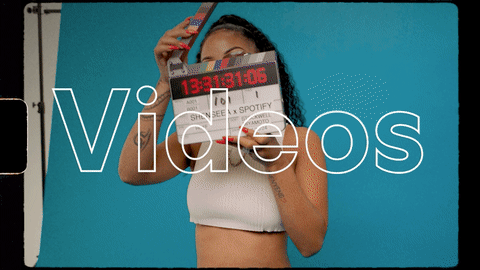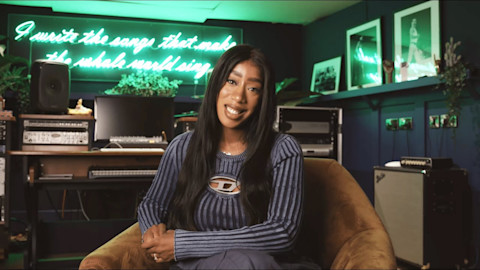If you’re an artist developing your career, you’re inevitably going to reach a point where "doing it yourself" leaves you with too much to do. Eric Osman, a manager based in Philadelphia, has been working with people in this position since 2011. It all started when he began helping his friend's band sell merch at book shows. That band was Modern Baseball, one of the break-out indie rock acts of the last few years. Osman would go on to start the label Lame-O Records, on which they'd make their debut. Lame-O now has over 50 records in its catalogue. Osman, meanwhile, has managed many of the label’s artists, helping navigate the ins and outs of the music business.
So, is hiring a manager right for you? And how do you find one if it is? Speaking over the phone, Osman offered a few tips for young artists trying to answer these questions.
Do: Know What You're Looking For
"Artists who haven't been doing it for awhile think that there’s some magical potion that a manager can give to them and will fix all of their problems," says Osman. Not so. A band won't become better, or more popular, simply because they now have a manager, but a good manager can help that band address specific needs. "A lot of the time artists can be very disorganized, and they can use someone more similar to a business manager to work on their accounting and their finances," Osman continues, citing one example.
A manager can help with the creative side, too, particularly when it's time roll out a new LP. Here, a manager can help an artist decide "what they want to talk about, what kind of the bonus add-ons they want do, how to book a tour, any of these things."
Do: Ask Other Bands for Recommendations
Say you decide that you want to hire a manager. Where do you begin the your search? Osman recommends starting with the artists around you. That could include everyone from your close friends to the group you're playing with next weekend. "Talk with your peers in your music scene who are playing bigger shows or have a wider audience and have been doing it for longer," he says. "See what they've done and see if they have anyone they can recommend."
Don't: Email Your Favorite Band's Manager
At least not if you only found that person's email by searching Google or Facebook. "I think it's really tough if you're a young person in a band and you think you've got it figured out and you know what you need, and then you go on Facebook and you look up the band that you really love and you write to their manager saying why you want them to manage you." This approach rarely works out.
Do: Look for Someone You Feel Comfortable With
"If you're looking for an artist manager at a very small, never-had-one-before level, you're really not going to be doing that much for the artist manager in the way of money," Osman says. That means that, for both parties, the artist's relationship with the manager is especially important. "[Artists] should look for someone that they get along with, that they can talk to and that understands what they're trying to do."
Do: Get in Touch With the Manager's Other Clients
If you have a candidate in mind, check out the other artists they work worth. If you seem like a good fit, reach out to one of those artists and try to learn a little more. "I think it would be completely reasonable to write a note to another artist with the management company, and just say, 'Hey, I'm considering working with this manager, I'd love to get your thoughts on their style of management and how working with them has been for your band.'"
Do: Decide Where You Will and Won't Compromise
Your manager will have suggestions. Know where you're willing to bend and where you want to hold firm, and make this clear from the outset. "I think it's important to remember that the artist is the artist, and the manager is working for the artist, and that's the way it's always supposed to be," Osman says. "It's your vision. They're not the artists."
Don't: Be Afraid to Do It Yourself After All
"If you work just as hard at finding a manager as you do at working on your band or your project, you'll probably see some results," Osman says. Still, not everyone wants to devote their time to this process. That's OK too: "I would love to emphasize that in 2018, the tools are out there for artists to do it themselves. It's easier than it used to be." This might mean reaching out to independent labels or even, like Osman, putting records out yourself. "The most important thing," he says, "is just finding ways to make it work for you."
--
Eric Osman’s Tips for Self Management:
#1. Use Cash Music
Eric: “Cash Music is a great tool for independent artists in the current climate. They are a nonprofit organization that has tools to streamline mailing lists, digital downloads, list tour dates, and more.”
#2. Pick up knowledge from "The Future of What"
Eric: “Portia Sabin of Kill Rock Stars hosts a podcast called ‘The Future of What’ that explores, explains, and deep dives on trends in the music industry through professional managers, agents, artists, and many other professionals that can offer a wealth of understanding and education to anyone trying (or forced) to be DIY.”
#3. Be present in your local community
Eric: “Most importantly, being present in whatever community you’re a part of is very important and having conversation and advice with other artists from your community about how they achieve goals that you’re looking to achieve is crucial. Book shows for touring artists when they’re coming through your town and ask them to return the favor. Create real relationships with other creative artists and keep it fun.”
-Nick Murray






